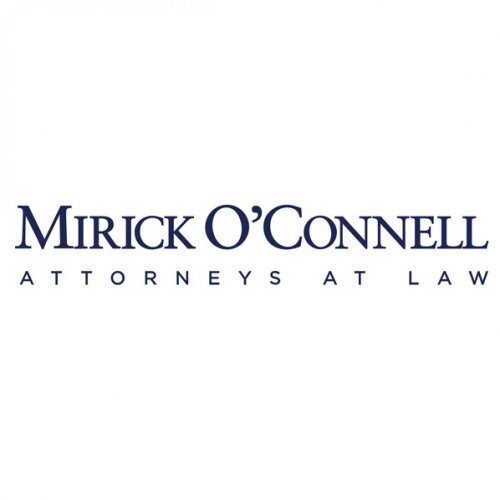Best Creditor Lawyers in United States
Share your needs with us, get contacted by law firms.
Free. Takes 2 min.
Or refine your search by selecting a city:
List of the best lawyers in United States
About Creditor Law in United States
Creditor law in the United States encompasses the rules and regulations that govern the relationship between creditors and debtors. It includes the rights of creditors to collect debts, the protections available to debtors, and how disputes between the two can be resolved. Creditor law ensures that while creditors have a right to pursue payment, debtors are protected from unlawful harassment or exploitation. The laws vary at federal, state, and local levels, with federal laws like the Fair Debt Collection Practices Act (FDCPA) playing a critical role in shielding consumers from unscrupulous debt collection practices.
Why You May Need a Lawyer
There are several situations where individuals or businesses might require legal assistance concerning creditors. Common scenarios include:
- Being pursued aggressively by debt collectors and needing to understand your rights.
- Facing a lawsuit for an unpaid debt and seeking representation in court.
- Considering filing for bankruptcy and wanting guidance on how it impacts creditor claims.
- Wanting to negotiate the terms of your debt or create a repayment plan with creditors.
- Disputing errors on your credit report or defending against unlawful collection practices.
An attorney specialized in creditor-debtor law can offer valuable advice, help protect your rights, and represent you during legal proceedings.
Local Laws Overview
In addition to federal laws, each state in the U.S. has its own set of laws addressing creditor-debtor interactions. Key aspects often include:
- Statutes of limitations on how long creditors can pursue debt collection after the initial default.
- Exemption laws determining which types of property can be protected from creditors.
- Specific regulations about wage garnishment and what percentage of wages can be claimed by creditors.
- Licensing and conduct requirements for collection agencies operating within the state.
For detailed understanding, consulting local statutes or seeking legal advice from an attorney familiar with specific state laws is crucial.
Frequently Asked Questions
What can a creditor do if a debtor does not pay their debt?
Creditors can send reminders, report the debt to credit bureaus, employ a collection agency, sue the debtor, or pursue wage garnishment or seizure of property under certain conditions.
Can creditors garnish social security benefits?
Social security benefits are generally exempt from creditor claims. However, exceptions exist for specific types of debts like taxes, federal student loans, and child support.
How does bankruptcy affect creditors?
When a debtor files for bankruptcy, an automatic stay is put in place which temporarily halts all collection activities. Depending on the bankruptcy type, debts may be discharged, affecting the creditor's ability to claim payment.
What is a statute of limitations for debt collection?
The statute of limitations is the time limit creditors have to initiate legal proceedings to collect a debt. This period varies by state and debt type, ranging from 3 to 10 years in most cases.
What are my rights if a creditor sues me?
If sued, you have the right to be notified properly, defend yourself in court, and appeal the court’s decision if necessary. It's advisable to seek legal counsel promptly.
Can a creditor repossess my car without notice?
In many states, secured creditors can repossess a car without prior notice if the loan agreement provides for it and you have defaulted on payments. However, they must comply with specific laws regarding repossession.
How do creditors use credit reports?
Creditors use credit reports to assess a debtor's creditworthiness before extending credit or loans. They also report delinquencies, which can impact a debtor’s credit score.
Can a creditor freeze my bank account?
Yes, but generally, they must first obtain a court judgment. Once they have a legal judgment, they can place a levy on the account to recover owed funds.
What is a secured versus an unsecured creditor?
Secured creditors hold a lien against a debtor's asset (like a mortgage), while unsecured creditors do not have any collateral backing their claim (such as credit card debt).
How can I dispute a debt with a creditor?
You can dispute a debt by sending a written request for validation to the creditor or collector within 30 days of receiving the validation notice. This requires the creditor to verify the debt before further collection activities.
Additional Resources
For further information and assistance, the following resources may be helpful:
- Federal Trade Commission (FTC): Offers guidelines and consumer information on debt collection and credit reports.
- National Consumer Law Center (NCLC): Provides resources and advocacy for low-income consumers facing creditor issues.
- American Bar Association (ABA): Offers a lawyer referral service to connect individuals with attorneys who specialize in creditor-debtor law.
- Local Legal Aid Offices: Available in most communities to offer free or low-cost legal assistance for qualifying individuals.
Next Steps
If you need legal assistance with creditor issues, consider the following steps:
- Document all communication and transactions related to the debt in question.
- Identify your legal needs, whether it's negotiation, representation in court, or clarification of your rights.
- Reach out to professional attorneys who specialize in creditor-debtor law, utilizing referrals from the American Bar Association or local legal aid services.
- Prepare any relevant documents and information before meeting with a lawyer, including creditor correspondence, account statements, and credit reports.
- Consult multiple attorneys to understand your options, costs, and the best approach to address your particular situation.
Taking proactive measures can help protect your rights and lead to the best possible outcome when dealing with creditor issues.
Lawzana helps you find the best lawyers and law firms in United States through a curated and pre-screened list of qualified legal professionals. Our platform offers rankings and detailed profiles of attorneys and law firms, allowing you to compare based on practice areas, including Creditor, experience, and client feedback.
Each profile includes a description of the firm's areas of practice, client reviews, team members and partners, year of establishment, spoken languages, office locations, contact information, social media presence, and any published articles or resources. Most firms on our platform speak English and are experienced in both local and international legal matters.
Get a quote from top-rated law firms in United States — quickly, securely, and without unnecessary hassle.
Disclaimer:
The information provided on this page is for general informational purposes only and does not constitute legal advice. While we strive to ensure the accuracy and relevance of the content, legal information may change over time, and interpretations of the law can vary. You should always consult with a qualified legal professional for advice specific to your situation.
We disclaim all liability for actions taken or not taken based on the content of this page. If you believe any information is incorrect or outdated, please contact us, and we will review and update it where appropriate.
Browse creditor law firms by state in United States
Refine your search by selecting a state.

















